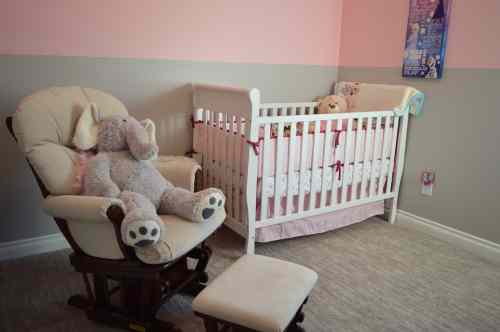Usually, preparing for labor and delivery can be exciting and nerve-wracking. When you add a pandemic to the mix, it can leave you feeling more stressed and anxious than usual. It is easy to tell you not to worry but that won’t be enough. Below are some tips on how you can prepare for childbirth during a pandemic.

1. Reduce stress and worry
Try your best to relax. According to ScienceDaily, if an expectant mother is strongly stressed over a longer period of time, the risk of the unborn child developing a mental or physical illness later in life – such as attention deficit hyperactivity disorder (ADHD) or cardiovascular disease – increases.
There’s so much bad news going around, turn off the TV if you have to, uninstall your social media apps for a while if you need to. If you feel inclined to know what is going on around you, ensure you are getting your information from verified sources. Be in constant contact with your loved ones via video calls. Do things that make you happy and get a lot of rest and sleep.
[Tweet “Preparing for labor and delivery can be exciting and nerve-wracking. Here are some tips on how you can prepare for childbirth during a pandemic.”]
2. Stay at home and practice social distancing
Right now, the CDC is not recommending specific measures for pregnant women beyond the infection prevention strategies recommended for everyone: hand washing, social distancing, avoiding crowds and working from home if possible. Pregnant health care workers can actually still go to work, but should not treat patients who have the virus. Read more on pregnancy and the coronavirus pandemic here.
3. Communicate with your health care providers
If your due date is close, it’s safe to assume that you were attending antenatal classes before the pandemic or that you are registered in a hospital. Communicate with your doctor or gynecologist about what their policies are. Birth policies in hospitals vary and they are constantly changing. You want to know what to expect.
What will you be expected to do and what can you bring? How safe will the environment be for you and your unborn child? Will the hospital allow your husband to be in the delivery room? These are questions you want to ask.
As always, your midwifery team will do everything they can to make sure you have a positive childbirth experience. You may need to be flexible with your birth plan and be prepared to do things differently from what you wanted. You just have to ask specific questions to make sure you are adequately prepared.
4 Buy all the essentials
Have you gotten everything you need to take to the hospital? Are you prepared to nurse your baby? For a complete shopping list, this ultimate baby shopping guide has everything you need. The article also has a checklist that you can use to confirm that you are on the right track – shopping wise. Check this guide to know what you need before and when your baby arrives – for you and your baby.
5. Prepare The Baby Nursery
You have to be prepared to come back home because you may not be allowed to stay in the hospital for long. Set up the crib, wash the sheets, and put any finishing touches on the room décor. Depending on your taste you can keep it simple but extremely unique. Baby unique colors are an added advantage here depending on the sex of the child involved. At this point, you could call in a home decorator or just decorate the room yourself. Make sure the nursery is highly baby-friendly and there are no harmful objects.
After the birth, is there any risk to me or my baby?
There is no evidence that women who have recently had a baby and are otherwise well are at increased risk of contracting coronavirus or of becoming seriously unwell. A recently pregnant woman’s immune system is regarded as normal unless she has other forms of infection or underlying illness.
The only risk you might face after leaving the hospital will be from accepting visitors into your home. You might want to avoid accepting home visits because your baby’s immune system is fragile and you don’t know who may have the virus. It is better to be safe than sorry.
Three generations of social distancing as my dad meets his grandson for the first time 😭😭😭 pic.twitter.com/uyHHgBBXxb
— Emma 🇵🇸 (@emmabethgall) March 21, 2020
See this viral tweet of a grandpa visiting his new grandson. You can introduce your baby to the extended family via video calls or wait until it is safe for them to visit as instructed by your doctor/pediatrician.
Do not put off seeking medical advice if you have concerns about your baby’s health during the pandemic. Seek medical advice if your baby has any symptoms you may have concerns about. Stay safe


